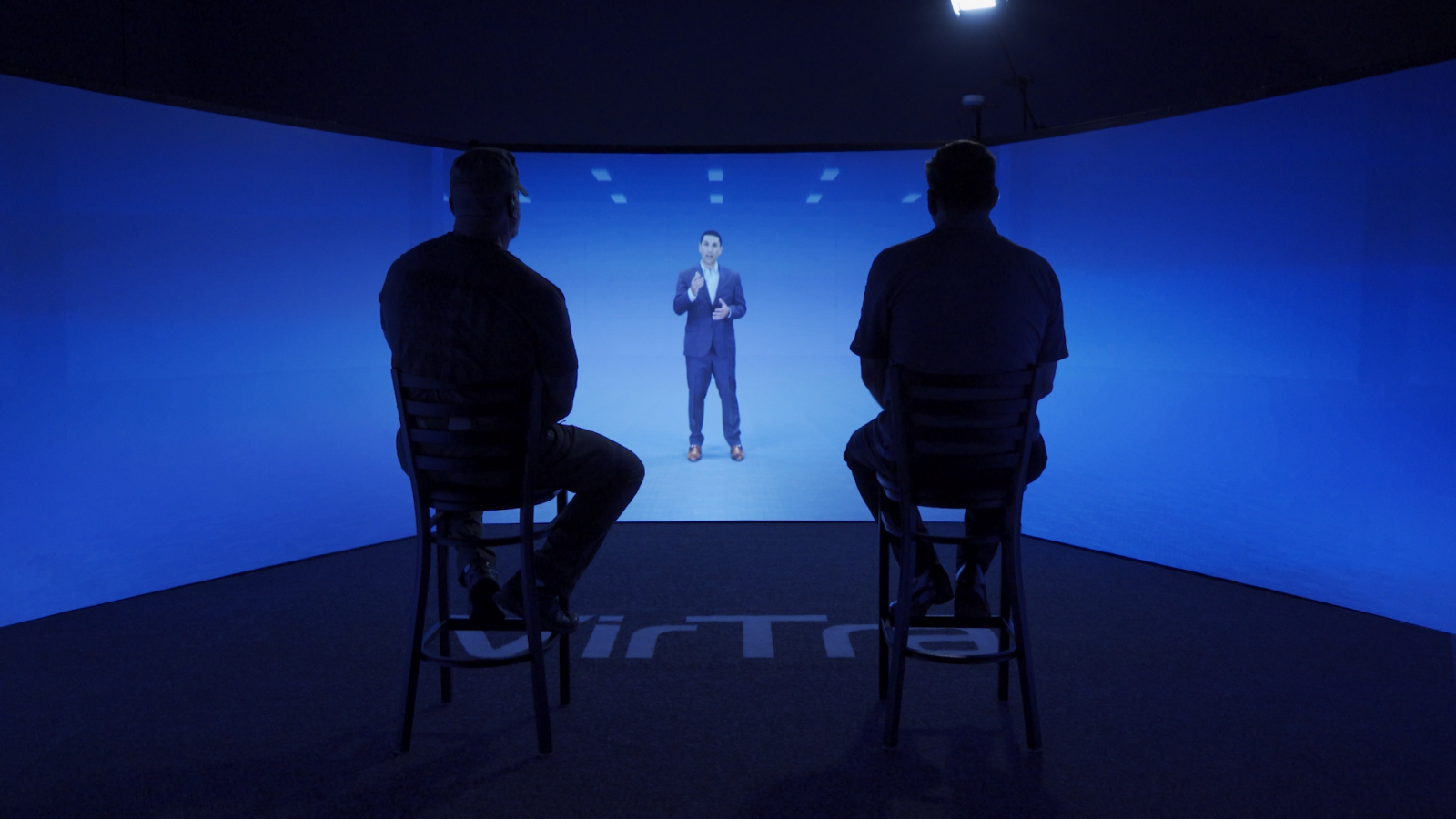Southwest Autism Research & Resource Center (SARRC) and VirTra, a global provider of training simulators for law enforcement, military, educational and commercial markets, have teamed up to develop comprehensive training for law enforcement officers. This training will be used to help officers bridge the communication gap and interact more effectively, and positively, with individuals with autism spectrum disorder (ASD).
To avoid unnecessary trauma of those with ASD and scrutiny of law enforcement agencies, SARRC and VirTra firmly believe extensive education and skills-based training is the right path toward keeping everyone safe.
This first-of-its-kind curriculum and virtual scenarios, which were created using actors with an autism diagnosis, include video modules that touch on a variety of topics, including recognition, communication strategies, and best practices for law enforcement officers across more than 300 agency locations that will all receive this new training.
“Because people with ASD can present a wide range of social, communication, and behavioral skills, initial interactions can be particularly challenging for law enforcement officers,” says Daniel Openden, president & CEO at SARRC. “This new curriculum highlights specific behaviors to help police officers quickly recognize they may be interacting with a person with autism.”
VirTra enlisted the help of SARRC in 2018 to begin developing the training program to provide the initial context on how police can better understand and quickly recognize the signs and symptoms in a person with autism while in the field.
“With a growing number of diagnoses, as well as more teens transitioning to adulthood each year, officers are more likely to encounter people with autism,” says Openden.
The most recent data released by the Centers for Disease Control and Prevention shares 1 in 54 children are diagnosed with ASD in the United States, and estimates suggest that 50,000 teens with ASD transition into adulthood each year. According to a 2017 study from the A.J. Drexel Autism Institute at Drexel University, 1 in 5 teenagers with autism was stopped and questioned by the police before age 21 and 5 percent were arrested.
“Whether they know it or not, law enforcement has been and will be interacting with people that are on the spectrum in a fairly frequent manner,” says Lon Bartel, VirTra’s director of training and curriculum, who led the effort to develop the new course. “We want to make sure to give officers the skill sets so that they can do their best and provide the level of care and service that those in the autism community need and deserve.”
If officers do not understand how to recognize behaviors like stimming (self-stimulatory behavior that can include hand-flapping, rocking, spinning or repetition of words), Bartel adds that it may be easy to interpret individuals with autism as something else, such as drug use or aggressive movements that may pose a potential risk for the officer. Rather than a threat, however, many of these behaviors are simply signs of a communication barrier or cognitive differences.
“One of the biggest challenges for us in this project is that when we say, ‘autism spectrum disorder,’ we really mean it. ASD includes individuals who are nonverbal as well as those formerly diagnosed with Asperger’s, who are highly verbal and present very differently than those with classic autism. Knowing this, we dedicated resources earmarked from our biennial Swirl, Sip and Savor event that raises funds to SARRC’s ThinkAsperger’s program, which allowed us to dedicate a team to help lend their expertise for this important project.
"It’s a spectrum, meaning we’re going to have many different symptoms and severities, from very mild to very severe and everything in between. If you’ve met one individual with autism, you’ve met one individual with autism–and the differences can be huge," says Openden.
Law enforcement members who participate in this course will receive lesson plans, pre-tests, and a test. They will be walked through each lesson via an on-screen instructor and participate in scenarios designed to teach officers how to properly talk through situations.
The new simulator on autism will be available worldwide and future plans include translated curriculums.
In the news
- KTAR: Phoenix autism advocates help create virtual training for police
- Arizona PBS’ Arizona Horizon: Helping law enforcement better handle situations with people with autism
- The Verde Independent: What I learned: Jerome chief’s experience with new autism awareness course
- Arizona Family's 3TV/CBS5: Company in Tempe develops training for officers to handle people with autism
Contact us
For media opportunities, please contact Karen Scott [email protected] or 602.218.8195. For more information about becoming involved with the new simulator developed by VirTra, please contact Miranda Fuller at [email protected] or 480.968.1488 x5078.




